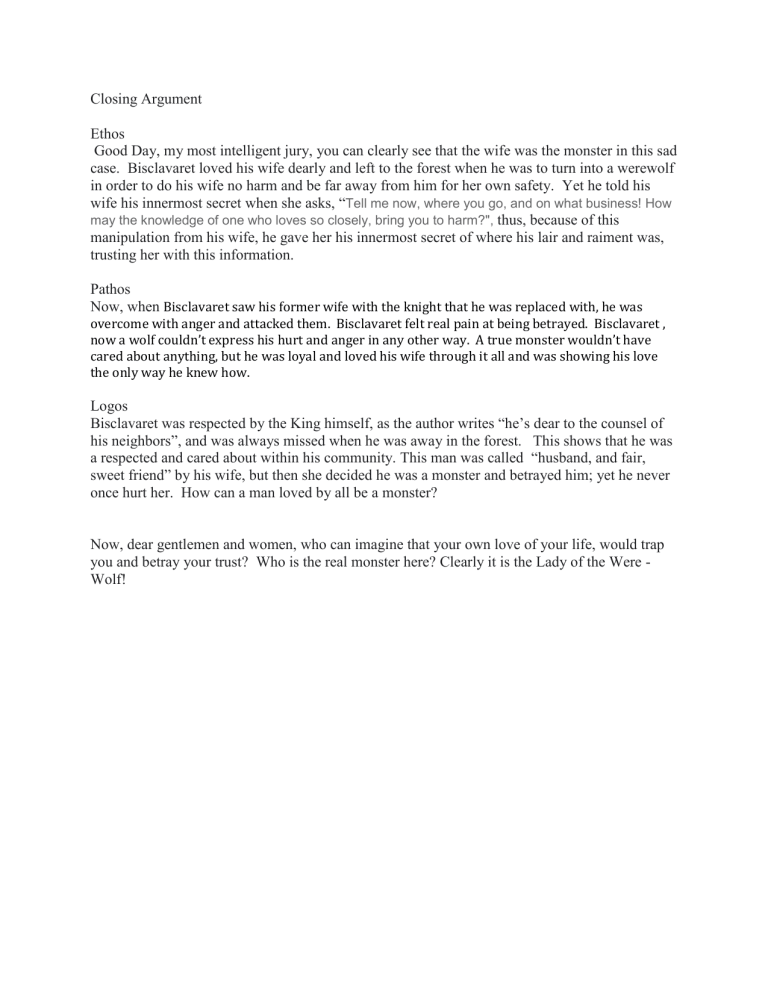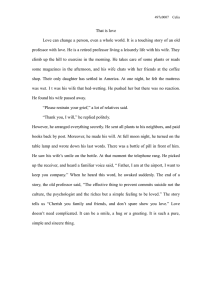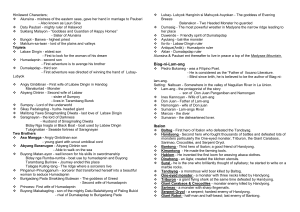
Closing Argument Ethos Good Day, my most intelligent jury, you can clearly see that the wife was the monster in this sad case. Bisclavaret loved his wife dearly and left to the forest when he was to turn into a werewolf in order to do his wife no harm and be far away from him for her own safety. Yet he told his wife his innermost secret when she asks, “Tell me now, where you go, and on what business! How may the knowledge of one who loves so closely, bring you to harm?", thus, because of this manipulation from his wife, he gave her his innermost secret of where his lair and raiment was, trusting her with this information. Pathos Now, when Bisclavaret saw his former wife with the knight that he was replaced with, he was overcome with anger and attacked them. Bisclavaret felt real pain at being betrayed. Bisclavaret , now a wolf couldn’t express his hurt and anger in any other way. A true monster wouldn’t have cared about anything, but he was loyal and loved his wife through it all and was showing his love the only way he knew how. Logos Bisclavaret was respected by the King himself, as the author writes “he’s dear to the counsel of his neighbors”, and was always missed when he was away in the forest. This shows that he was a respected and cared about within his community. This man was called “husband, and fair, sweet friend” by his wife, but then she decided he was a monster and betrayed him; yet he never once hurt her. How can a man loved by all be a monster? Now, dear gentlemen and women, who can imagine that your own love of your life, would trap you and betray your trust? Who is the real monster here? Clearly it is the Lady of the Were Wolf!

